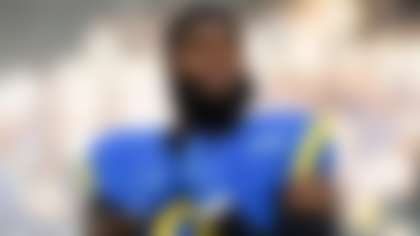The airport was a sad place the day after the Super Bowl, full of zombies wearing atrocities like T.J. Houshmandzadeh jerseys. The Seahawks fans were mournful, but the vibe could have been different if their team was better prepared for the final few plays Sunday.
More than enough attention has been paid to offensive coordinator Darrell Bevell's decision to call a pass from the one-yard line with 26 seconds to go. That decision -- and its execution -- will be discussed as long as football is played.
We're just as interested in what took place beforeRussell Wilson dropped back to pass. While watching the game live, we expected Bill Belichick to take a timeout after Marshawn Lynch was tackled at the one-yard line with 1:02 left. That would have theoretically given Tom Brady more time to drive for a field goal if the Patriots defense gave up a touchdown.
"We were conscious of how much time was on the clock, and we wanted to use it all," Bevell said after the game.
Pete Carroll also indicated to NFL Media's Steve Wyche that the Seahawks wanted to use all three of their remaining plays if necessary. So they were planning to throw, then run, then use a timeout if necessary to decide on the final play call. This all makes some sense on paper until you realize the Seahawks burned 40 seconds between plays.
This is where the coaching staff and possibly Russell Wilson's inexperience let the team down. They didn't snap the ball on their fateful interception until only five seconds were left on the play clock. By taking so much time, the Seahawks limited their options and started worrying too much about the clock and using "all of their plays."
As Bill Barnwell pointed out in a great piece for Grantland, the Seahawks' history in a very similar situation could have been a factor. Lynch scored with 34 seconds left against Atlanta in the Divisional Round in 2013 to take a one point lead before Seattle's defense coughed up a field goal drive.
Carroll kept repeating to Wyche that "we have to get three plays run" in that scenario.
"It's really clear," Carroll said. "The matchup happened and we knew that you had to throw it one of those plays to stop the clock, so you can get the other two plays run."
But you don't need to run three plays if you score a touchdown. And you wouldn't be as worried about getting all three plays run if you decisively called plays, and got the second down snap off faster.
The Seahawks made it to the Super Bowl because of their running game and defense, but both were missing in action in the fourth quarter Sunday.
"Our two minute stuff was exquisite," Carroll said wistfully to Wyche. "Unfortunately, it didn't win the game for us. It should have, but it didn't."
The latest Around The NFL Podcast recaps Super Bowl XLIX, including Malcolm Butler's game-sealing interception, Tom Brady's legacy and more. Find more Around The NFL content on NFL NOW.












